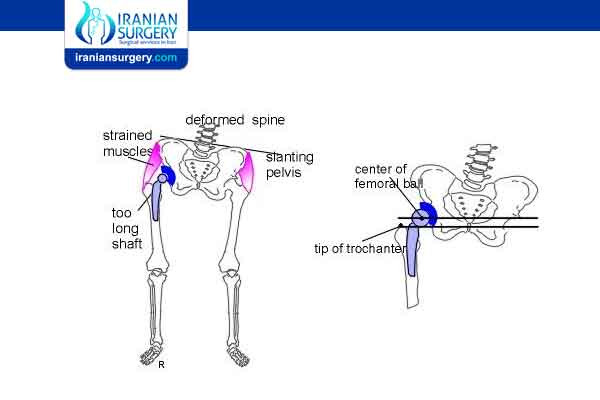Leg Length Discrepancy Exercises

Leg Length Discrepancy Exercises
Some people are born with one leg longer than the other. In other cases, injury or illness causes a discrepancy in leg length that may progress over time. This isn't necessarily something to worry about, as a little variation is normal and likely won't lead to any health issues.
However, greater variations can be cause for concern. People with a leg length difference of 2 centimeters or more have a greater risk for developing osteoarthritis — a form of arthritis characterized by the breaking down of cartilage in joints — in their hip or knee, which can lead to loss of movement in affected joints and other conditions.
Certain exercises and stretches may help minimize leg length discrepancy and ease any related symptoms. As with most forms of exercise, you should begin slowly and increase power only if it’s comfortable for your body to do so.
Read more about : Leg lengthening surgery cost 2021
Read more about : Leg lengthening surgery before and after photos
Read more about : Leg lenthenening surgery sucees story
Read more about : Leg lengthening surgery scars
Read more about : Success rate of limb lengthening surgery
Read more about : Walking after Leg Lengthening Surgery
Read more about : Running after Limb (Leg) Lengthening
Read more about : Limb Lengthening Surgery-External Fixators
Read more about : Lengthening over Nails (LON)
Exercises to Help Leg Length Discrepancy
Side Kicks
High-impact exercises can cause physical strain, which isn't always a bad thing. Physical force can cause micro strains on your bones, which results in incremental changes in bone mass and length — especially if the exercise is repeated over time.
One exercise that can put this kind of strain on your affected leg bones is side kicking into the air. To get the most out of this exercise, do multiple sets daily. If you want to increase the overall impact, slightly raise the height of your kicks. To decrease the impact, lower your leg height.
. Step 1: Stand with your back straight and your feet shoulder length apart. Bend your arms and put your hands into fists, and then hold them in a defensive position near your chest.
. Step 2: Lean your body weight onto your longer leg. While taking a deep breath in, bend and lift your shorter leg until it’s at the same length as your hip. Keep your foot pointed straight ahead.
. Step 3: While breathing out, kick your bent leg out and to the side of your body, so that your leg becomes fully flexed and your foot is still at the same height.
. Step 4: Return to your initial position, and repeat.
__________________________________________________________________________________________________________________________________________
The mission of Iranian Surgery is to put international patients in direct contact with Iranian based medical centers through a user-friendly online platform.
We offer medical consultation to more than 1,500 people every month.
Our website has more than 200,000 monthly visitors.
We cooperate with top Iranian surgeons and hospital to find the best treatment for you.
Read more about : Leg lengthening surgery pros and cons
Read more about : Leg lengthening surgery
Quadriceps Lifts with Walker
People with hip dysplasia who undergo total hip arthroplasty (hip replacement surgery) are at higher risk for developing leg length discrepancy. This research-backed exercise is intended for people who have recently had this procedure and are currently in recovery. You will need a walker.
. Step 1: Stand upright to ensure your back is straight.
. Step 2: Move the walker one step ahead of your body.
. Step 3: Raise the leg on your non-operative side until your knee is flexed at a 90-degree angle. Hold this position for three seconds, and then put your foot back to the floor.
. Step 4: Move the walker another step ahead and repeat with the leg on your operative side.
. Step 5: For best results, repeat this cycle 20 to 30 times, three to six times daily during your recovery period.
Hamstring Stretch
Non-surgical interventions for leg length discrepancy sometimes involve stretching the muscles in the lower half of your body, such as:
. Hip adductors (groin muscles)
. Hamstrings
. Piriformis (a muscle in your buttocks near the top of the hip joint)
. Iliopsoas (hip flexor)
To lengthen your hamstrings, you can do the following stretching exercise:
. Step 1: Lie down on the floor with your back to the ground.
. Step 2: Leave the longer leg on the ground and put your shorter leg up against a wall, keeping the leg elongated and not bent at the knee. You should be close enough to the wall that you feel a stretch in the back of your raised leg.
. Step 3: Hold this position for 30 seconds and then repeat the stretch three times, three days a week.
Read more about : Limb lengthening Surgery scar
Safety Considerations
When doing these exercises, you should feel a gentle stretch or comfortable tension, but not discomfort or pain. If any of them cause pain, make accommodations by reducing the number of repetitions you do or lowering your intensity.
Be sure to reach out to your doctor if you experience any negative side effects after completing these exercises.


